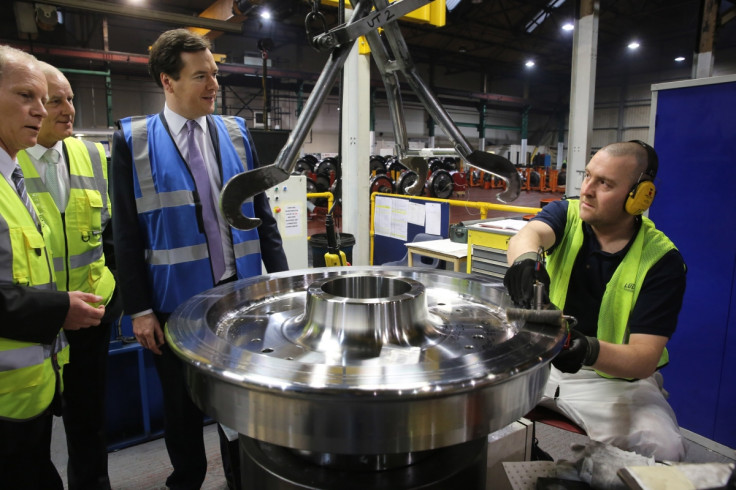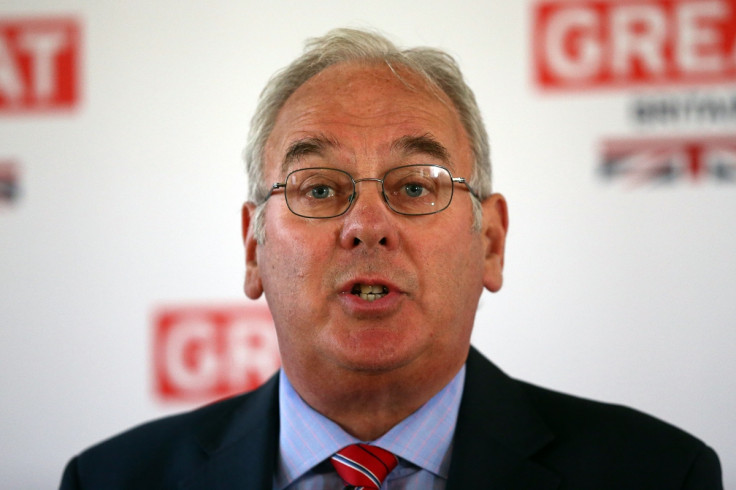Unleashing business investment will revive Britain's zombie economy

Government ministers speaking at the Tory party conference have been claiming the UK economy is in fine fettle, drawing upon headline output growth of 2.5 to 3% over the past couple of years. Underneath the GDP statistics, though, things are far from healthy. Many economic factors have only just returned to their 2007 level. Productivity – that's output per working hour – GDP per person, and household incomes are all pretty much where they were before the 2008 financial crash: not much to show for all the effort exerted since then to move the economy ahead.
And while business investment has picked up a touch and the trade deficit has narrowed a little, no one can legitimately claim that either is strong, or even on a sustained roll. Since the recession ended in 2009 the much talked-about "rebalancing" from consumption and debt to investment and exports is hard to discern. UK manufacturing output is still 6% below its pre-crash peak, and has just fallen back into recession after two successive quarters of decline.
Lower British productivity follows directly from relatively lower levels of business investment and of spending on research and development going back many decades.
Although Chancellor George Osborne stresses that the UK had the fastest-growing G7 economy in the past two years, away from this headline the direction of travel again looks to be the opposite. The productivity gap with the average of the other G7 industrialised countries has been widening, rising to 20 percentage points last year. This is not the "productivity puzzle" it is often described as. Lower British productivity follows directly from relatively lower levels of business investment and of spending on research and development going back many decades.
This is the sorry economic backdrop for a discussion that is worth revisiting in The Wright Report, written by Jaguar Land Rover's Mike Wright and published last year by the pre-Corbyn Labour Party as a strategy for "a modern, active industrial policy".
The report focuses on how to strengthen "advanced manufacturing", a sector distinguished by its intensity of research and development, and dominated by three industries: aerospace, automotive and pharmaceuticals. Although only representing about 4% of the economy – manufacturing overall is about 10% – advanced manufacturing is particularly important economically. This is not because it's about making things as opposed to providing services – both making things and delivering services can be highly value adding – but because any thriving economy needs to be innovating continually. Advanced manufacturing can be such a sector.

The report's core argument is that politicians and policy makers have to see the economy through the lens of business investment decisions and must give sustained effort to creating "a globally competitive investment environment". This means paying attention to costs, or at least those costs governments directly charge such as business taxation and energy prices that are being inflated by environmental regulation. The British government makes much of having the lowest headline corporation tax rate in the G20 countries, but is rather less vocal about business property rates being equivalent to about 1.6% of national income, which is more than three times the OECD average of 0.5%.
More importantly a focus on the investment environment also means paying attention to productivity, which is primarily a function of the pace of innovation – which government could improve by spending more on science and technology – and then on having a strong skills base. For advanced manufacturing the crucial top-level skills needed are in engineering.
Acting on all this would be good, positive stuff from government, but on its own will not be enough. Ultimately, as the report emphasised, the prospect for advanced manufacturing, and for the economy overall, "depends entirely on the investment decisions taken by companies". Putting it simply, the report stated: if companies – domestic and foreign – choose to invest and re-invest in the UK then jobs and growth will follow. If they stop investing here, decline ensues.
State policies, deliberate or not, are tying up labour and capital in low-productive uses.
This gets to the crux of Britain's economic decay and its more recent absolute stagnation. For a long time – going back at least half a century – there has not been enough business investment, especially in the innovative and transformative technologies that are necessary to grow productivity. Wright's report stresses that the industrial policy he wants to see "is not about propping up bad businesses, subsidies, or picking winners". Our problem is that there has been too much of all those things going on.
Behind the rhetorical facade of a state in economic retreat, the state has been moving in the opposite direction ever since Thatcher's time. It has been extending its economic reach, through wider regulation, through easy monetary policies, through outsourcing and procurement policies – and spending as much as it ever has – thereby acting to sustain existing business, both the weak and the strong. The unintended effect of the state focusing its efforts on stabilising the status quo has been to entrench a zombie economy: an economy dead in palpable productive dynamism, but propped up to ensure the semblance of life.
State policies, deliberate or not, are tying up labour and capital in low-productive uses. By getting in the way of the normal turnover of business, they further depress economic dynamism. These are unappealing conditions for any business – however well funded – to invest in. A zombie economy becomes a black hole that sucks in and dampens all activity. It becomes a trap that reduces the revenue and profitability of even the most efficient companies, becoming another huge impediment to business investment.
The precondition for the new industrial policy of the Wright Report to work in boosting business investment is that government has not just to start doing much more to support innovation and productivity growth. It also needs to stop doing all the things that support this atrophying zombie economy.
Phil Mullan, author of The Imaginary Time Bomb: Why An Ageing Population Is Not A Social Problem (IB Tauris, 2000), and Getting Back Our Mojo (forthcoming) will be speaking at the session Can we manufacture a new economy? at the Battle of Ideas, Saturday 17 October. IBTimes UK is a media partner to the festival.
© Copyright IBTimes 2025. All rights reserved.






















